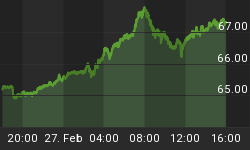In a recent article Mike Shedlock (Mish) weighs in on the question of whether or not gold is money. Near the end of the article he concludes: "The only possible debate about whether or not gold is money pertains to the phrase "demanded mainly as a medium of exchange." That's totally correct, which is why it is not correct to say that gold is money. However, earlier in the same article Mish seems to argue that gold has again become money thanks to the advent of BitGold. As discussed below, this makes no sense.
There are two major problems with the argument that the advent of BitGold means that gold is now (once again) money. The first and more important is that the BitGold system comprises only a miniscule fraction of the total gold supply, so in no way does it result in gold being "demanded mainly as a medium of exchange."
The second problem is that the BitGold debit card does not involve using gold as money. When someone uses such a card to buy something, the merchant doesn't receive gold in exchange for goods/services. What happens is that some of the gold in the cardholder's account is sold to obtain "money", which is then transferred to the merchant. In this respect, paying for something using a BitGold debit card is similar to paying for something by writing a cheque on a Money-Market Fund (MMF). When you pay using a MMF cheque (check, if you are American), the receiver of the cheque doesn't end up with MMF units. What happens is that the MMF sells some of its assets to obtain the "money" needed to complete the transaction. That's why MMFs should not be counted in the money supply. They are investments in securities, not money.
Moving on, it's important to understand that money isn't just 'a' medium of exchange. At any given time in any economy, many things will be occasionally used as media of exchange, that is, as currencies. Take Frequent Flyer Miles as an example. Frequent Flyer Miles are sometimes used as a medium of exchange. In fact, in most developed economies they are used more commonly than gold as a medium of exchange. However, nobody is seriously claiming that Frequent Flyer Miles are money. Cigarettes are another example. Cigarettes are used as mediums of exchange in some prisons, but cigarettes obviously aren't economy-wide "money" and nobody (as far as we know) is seriously claiming otherwise. Clearly, then, sometimes being used as 'a' medium of exchange is not the same as being money.
Money is not simply A medium of exchange (a currency), it is THE medium of exchange used in the vast majority of economic transactions (a very commonly-used currency throughout the economy).
The final word goes to Ludwig von Mises, the greatest economist of the 20th Century. It was Mises who, from beyond the grave via his writings, convinced me many years ago that gold is no longer money*. Here is Mises from his book "The Theory of Money and Credit":
"The balancing of production and consumption takes place in the market, where the different producers meet to exchange goods and services by bargaining together. The function of money is to facilitate the business of the market by acting as a common medium of exchange."
And for those people who harp on about "store of value" as if it were the dominant characteristic of money:
"The simple statement, that money is a commodity whose economic function is to facilitate the interchange of goods and services, does not satisfy those writers who are interested rather in the accumulation of material than in the increase of knowledge. Many investigators imagine that insufficient attention is devoted to the remarkable part played by money in economic life if it is merely credited with the function of being a medium of exchange; they do not think that due regard has been paid to the significance of money until they have enumerated half a dozen further 'functions' -- as if, in an economic order founded on the exchange of goods, there could be a more important function than that of the common medium of exchange."
And here is Mises from his book "Human Action":
"The theory of money was and is always the theory of indirect exchange and of the medium of exchange."
*Like many of the people who responded negatively to my "Gold Is Not Money" articles, once upon a time I also laboured under the misconception that gold was money.















